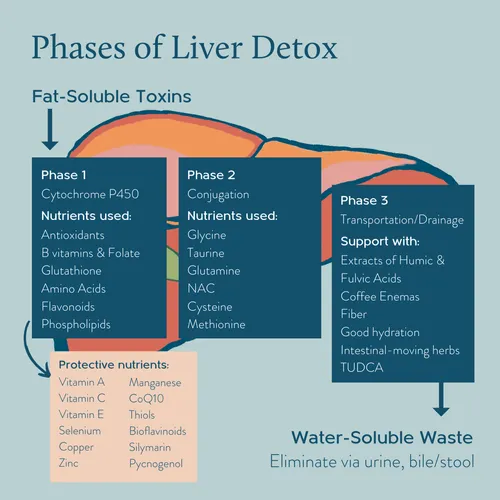Revitalize Your Liver: Steps to Enhance Function and Wellness
The liver is one of the most important organs in the body, responsible for filtering toxins, producing bile, and aiding in digestion. It plays a crucial role in overall health and wellness, yet many people neglect to take care of this vital organ. In order to maintain optimal liver function and promote overall health, it is important to take steps to revitalize and support the liver.
In this article, we will discuss the importance of liver health, common factors that can impact liver function, and steps you can take to revitalize your liver and improve your overall well-being. We will also provide answers to commonly asked questions about liver health and function.
Importance of Liver Health
The liver is responsible for performing a wide range of functions that are essential for overall health and well-being. Some of the key roles of the liver include:
– Filtering toxins: The liver filters toxins and waste products from the blood, helping to remove harmful substances from the body.
– Producing bile: The liver produces bile, which is essential for digestion and the absorption of fats and fat-soluble vitamins.
– Metabolizing nutrients: The liver metabolizes nutrients from the food we eat, converting them into forms that can be used by the body.
– Regulating blood sugar levels: The liver helps to regulate blood sugar levels by storing glucose as glycogen and releasing it when needed.
– Producing proteins: The liver produces proteins that are essential for blood clotting, immune function, and maintaining fluid balance in the body.
Given the vital role that the liver plays in overall health, it is important to take steps to support and revitalize this organ.
Factors That Impact Liver Function
There are a number of factors that can impact liver function and contribute to liver damage. Some of the common factors that can affect liver health include:
– Poor diet: A diet high in processed foods, sugar, and unhealthy fats can put strain on the liver and contribute to inflammation and damage.
– Alcohol consumption: Excessive alcohol consumption can lead to liver damage and increase the risk of conditions such as fatty liver disease and cirrhosis.
– Medications and toxins: Certain medications, recreational drugs, and environmental toxins can put strain on the liver and impair its function.
– Obesity: Excess body weight can increase the risk of fatty liver disease and other liver conditions.
– Chronic conditions: Conditions such as hepatitis, autoimmune disorders, and genetic disorders can impact liver function and lead to liver damage.
By taking steps to address these factors and support liver health, you can revitalize your liver and promote overall wellness.
Steps to Revitalize Your Liver
There are a number of steps you can take to revitalize your liver and support optimal liver function. These steps include:
1. Eat a healthy diet: A diet rich in fruits, vegetables, whole grains, and lean proteins can help to support liver health and reduce inflammation. Avoid processed foods, sugar, and unhealthy fats, which can put strain on the liver.
2. Stay hydrated: Drinking plenty of water can help to flush toxins from the body and support liver function. Aim to drink at least 8-10 glasses of water per day.
3. Limit alcohol consumption: If you drink alcohol, do so in moderation. Limit consumption to no more than one drink per day for women and two drinks per day for men.
4. Exercise regularly: Regular physical activity can help to support liver health and reduce the risk of fatty liver disease. Aim to engage in at least 30 minutes of moderate exercise most days of the week.
5. Maintain a healthy weight: Being overweight or obese can increase the risk of fatty liver disease and other liver conditions. Aim to maintain a healthy weight through a combination of diet and exercise.
6. Get regular check-ups: Regular visits to your healthcare provider can help to monitor liver function and detect any potential issues early on. Be sure to follow any recommendations for liver health screening and testing.
7. Limit exposure to toxins: Try to minimize your exposure to environmental toxins and chemicals that can put strain on the liver. Use natural cleaning products, avoid smoking, and limit exposure to pollutants whenever possible.
By incorporating these steps into your daily routine, you can revitalize your liver and promote optimal liver function and overall wellness.
FAQs About Liver Health
Q: What are the symptoms of liver damage?
A: Symptoms of liver damage can vary depending on the underlying cause, but common signs include fatigue, jaundice (yellowing of the skin and eyes), abdominal pain, swelling in the abdomen, dark urine, and pale stools.
Q: Can liver damage be reversed?
A: In some cases, liver damage can be reversed with lifestyle changes and medical treatment. However, advanced liver disease may require more aggressive interventions such as medication or surgery.
Q: How can I prevent liver damage?
A: To prevent liver damage, it is important to maintain a healthy diet, limit alcohol consumption, exercise regularly, and avoid exposure to toxins. Regular check-ups with your healthcare provider can also help to monitor liver function and detect any potential issues early on.
Q: Are there any natural remedies that can support liver health?
A: Some natural remedies that may support liver health include milk thistle, dandelion root, turmeric, and artichoke extract. However, it is important to consult with a healthcare provider before starting any new supplement regimen.
Q: How often should I have my liver function tested?
A: The frequency of liver function testing will depend on your individual risk factors and health history. Your healthcare provider can recommend a testing schedule based on your specific needs.
In conclusion, the liver plays a crucial role in overall health and wellness, and it is important to take steps to revitalize and support this vital organ. By eating a healthy diet, staying hydrated, limiting alcohol consumption, exercising regularly, maintaining a healthy weight, and getting regular check-ups, you can promote optimal liver function and improve your overall well-being. If you have any concerns about your liver health, be sure to consult with your healthcare provider for personalized guidance and recommendations.


